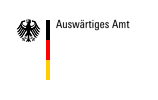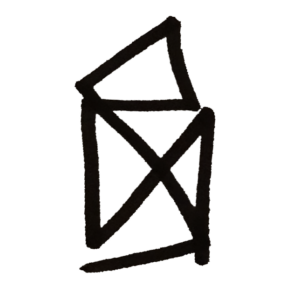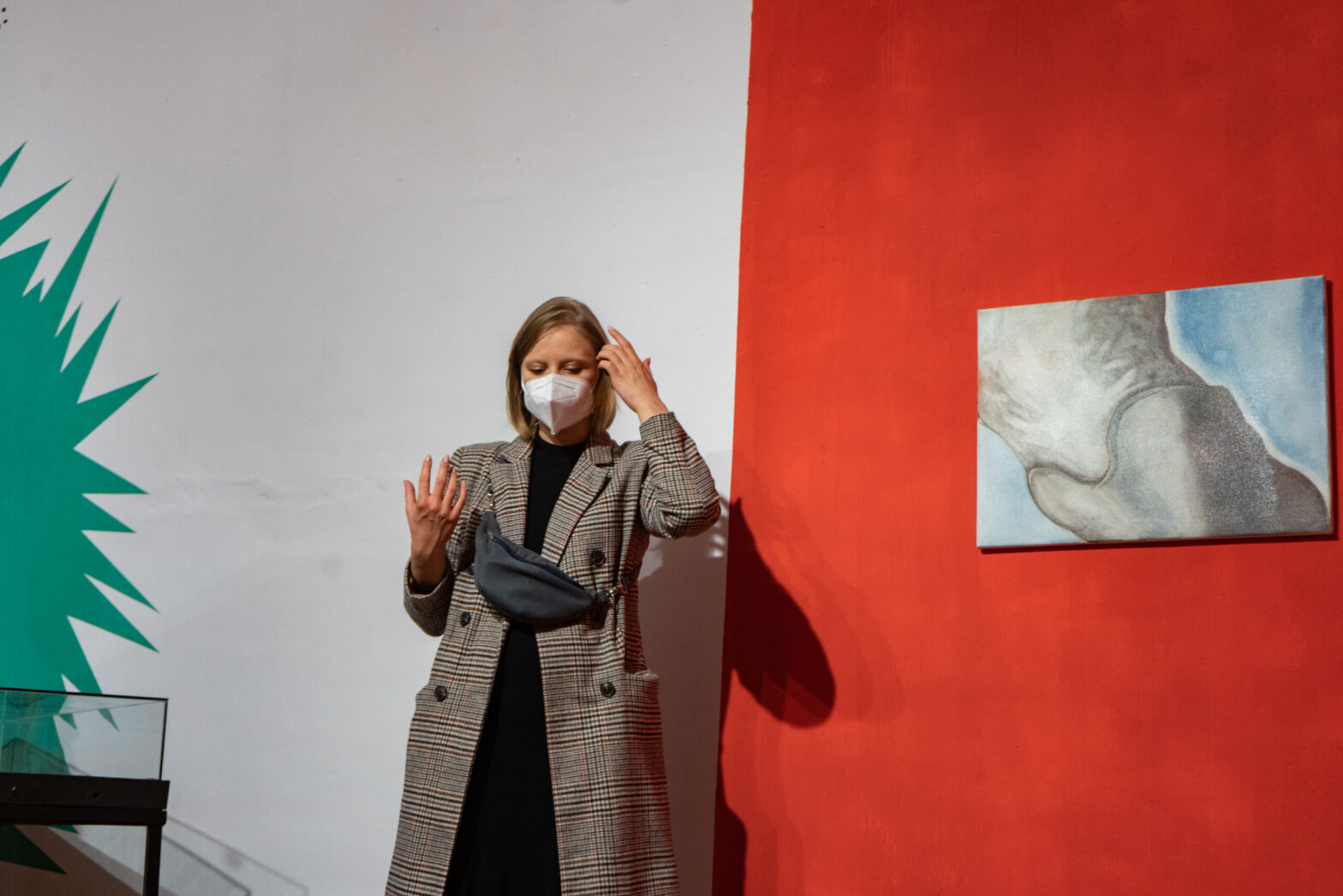Die Aufstände in Belarus sowie auch die schwarzen Proteste in Polen brechen mit überkommenen Traditionen und dem etablierten Status Quo. Sie setzen Energien frei, die Zukunft unter rechtsstaatlichen und demokratischen Vorzeichen neu zu denken. Die Ausstellung widmet sich den Fragen danach, wie ein bewusstes Ablehnen und Ablegen von gewohnten Denkmustern und Strukturen Teil dieser Proteste ist, und welche Rolle die Kunst dabei spielt.
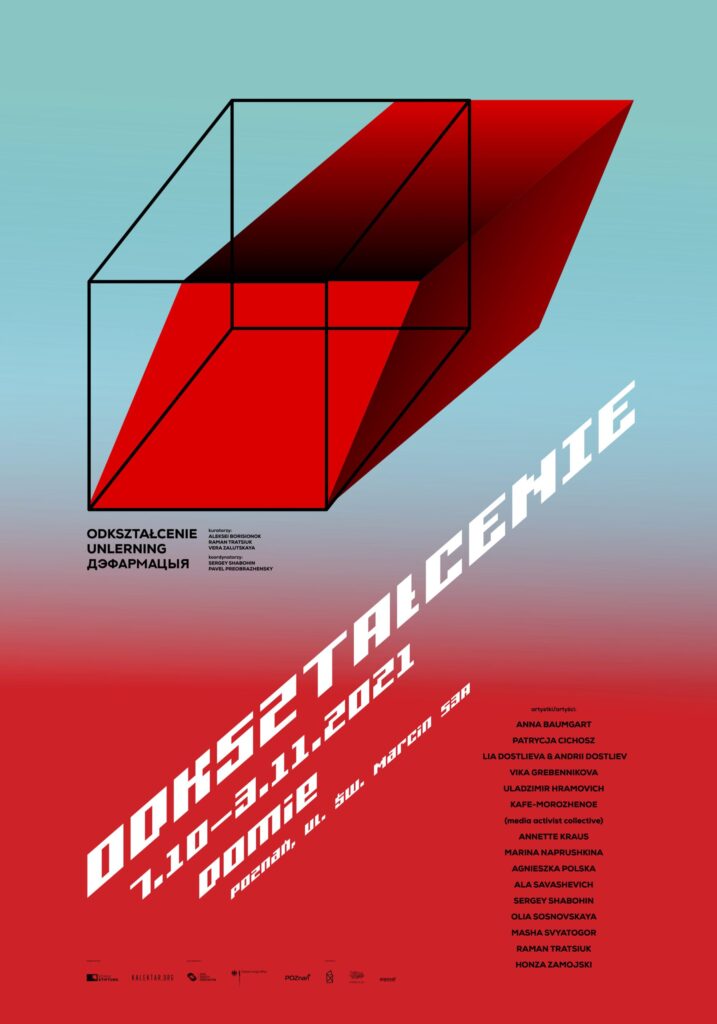
Analog dem durch Sara Ahmed geprägten Konzept der feministischen Spaßbremse möchte die Ausstellung aufzeigen, wie ein Infragestellen, Herausfordern und Ablegen von Normen und Machtverhältnissen zwar mitunter schmerzhaft und unpopulär sein kann, schlussendlich aber zu Freiheit und einem selbstbestimmten Leben führt. Demnach geht es im revolutionären Werden nicht nur um die Produktion von neuem Wissen, sondern explizit auch um die Geste der Ablehnung – von Wissen, das den Status quo aufrechterhält, das Gewalt, Patriarchat und Imperialismus reproduziert.
Die Werke von 13 belarussischen und polnischen Künstler*innen sowie einem internationalen Kunstkollektiv möchten aufzeigen, wie die Protestbewegungen den Rahmen für eine unvoreingenommene künstlerische Auseinandersetzung mit Vergangenheit und Gegenwart bieten, abseits des etablierten offiziellen Narrativs. Mit der massiven Unterdrückung und Zensur abweichender Meinungen haben das Kunstsystem und Institutionen wie Universitäten und Akademien unlängst ihre Freiheit des Denkens verloren. Die Proteste mit ihrer radikalen Ablehnung überkommener Strukturen geben die Möglichkeit, eben diese Freiheit wieder zu gewinnen.
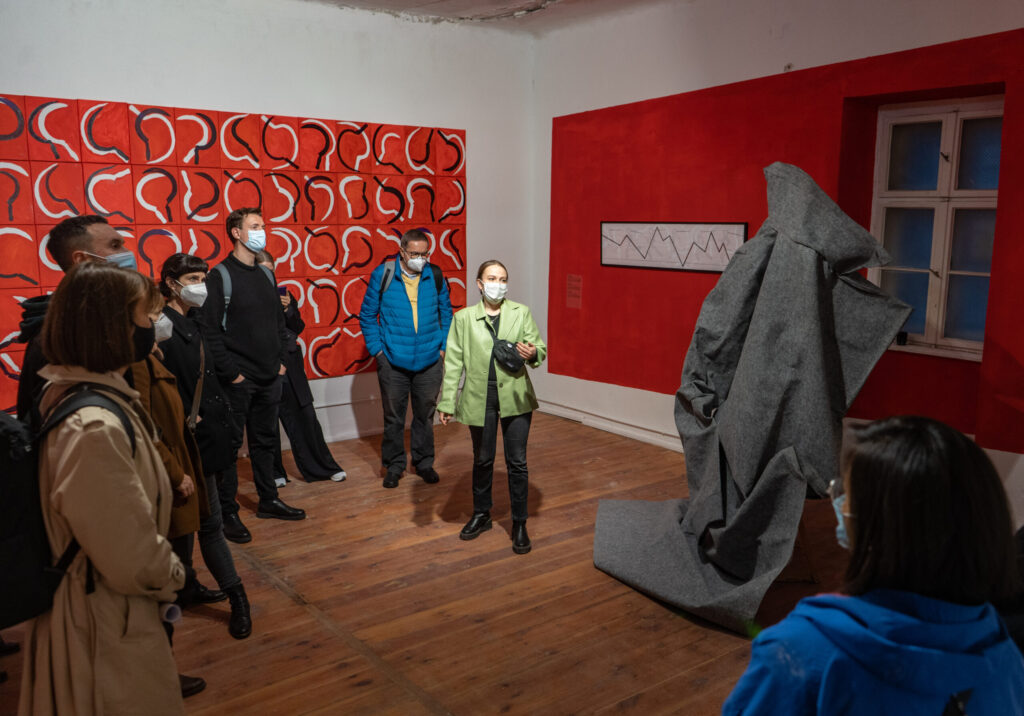
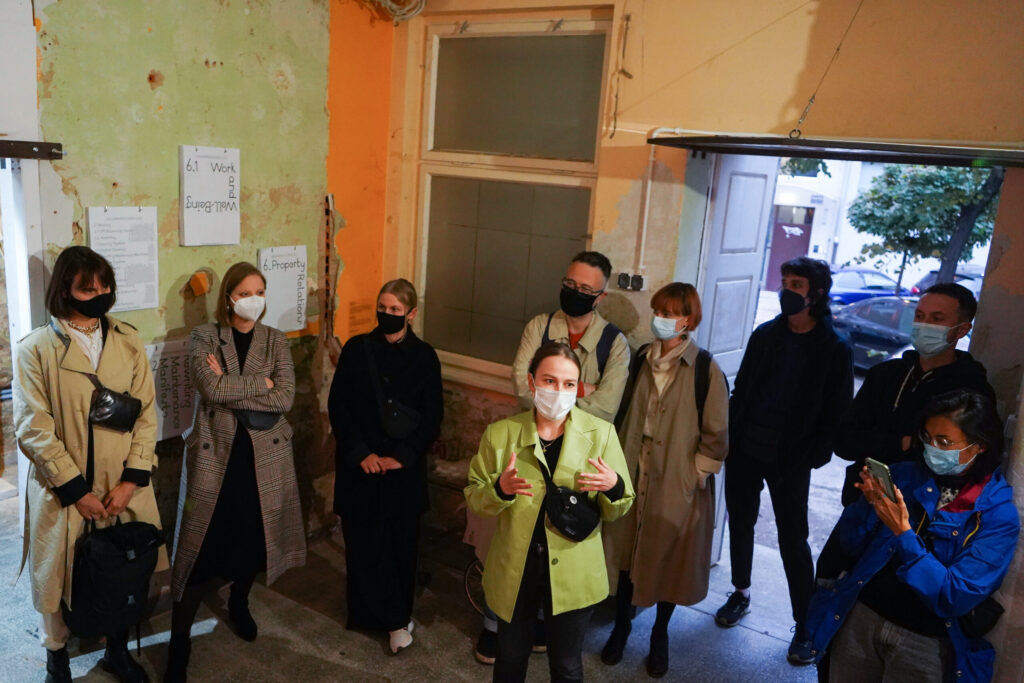
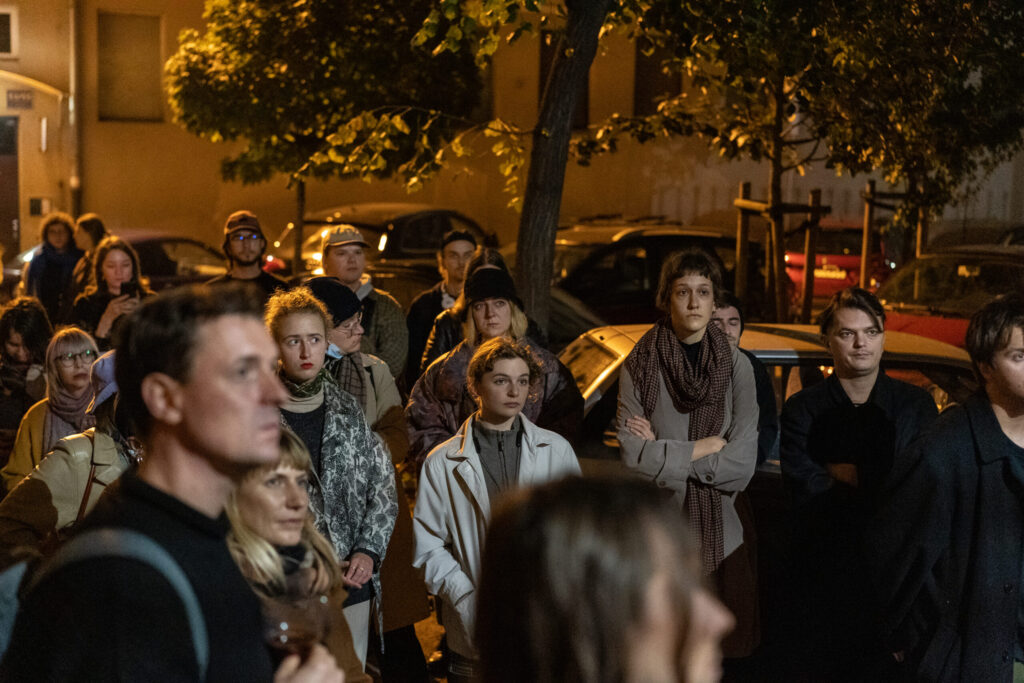
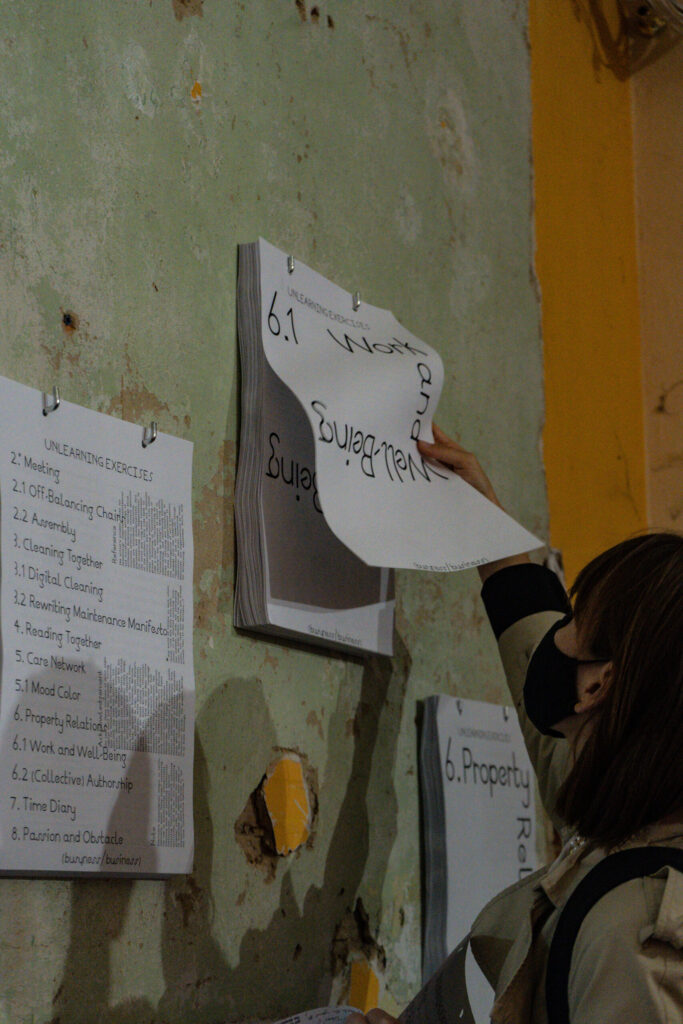
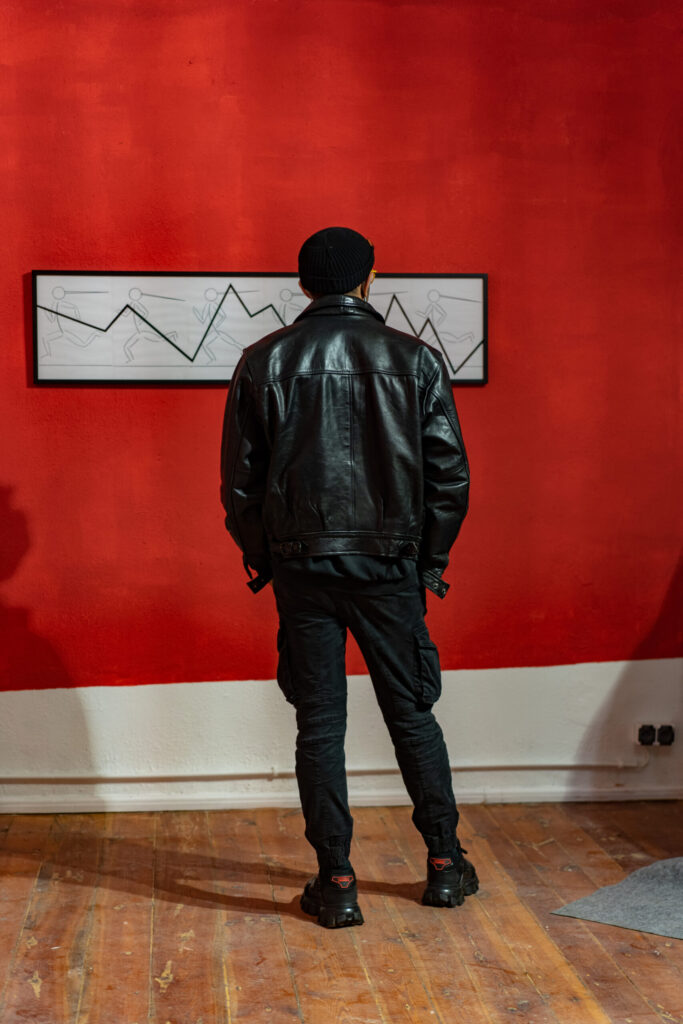
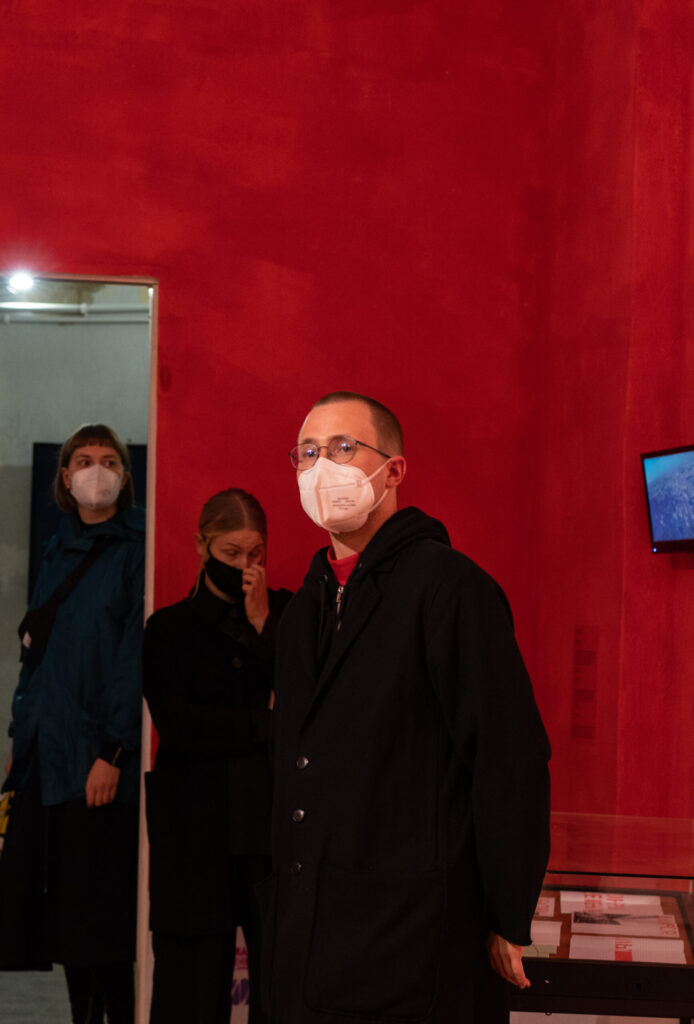
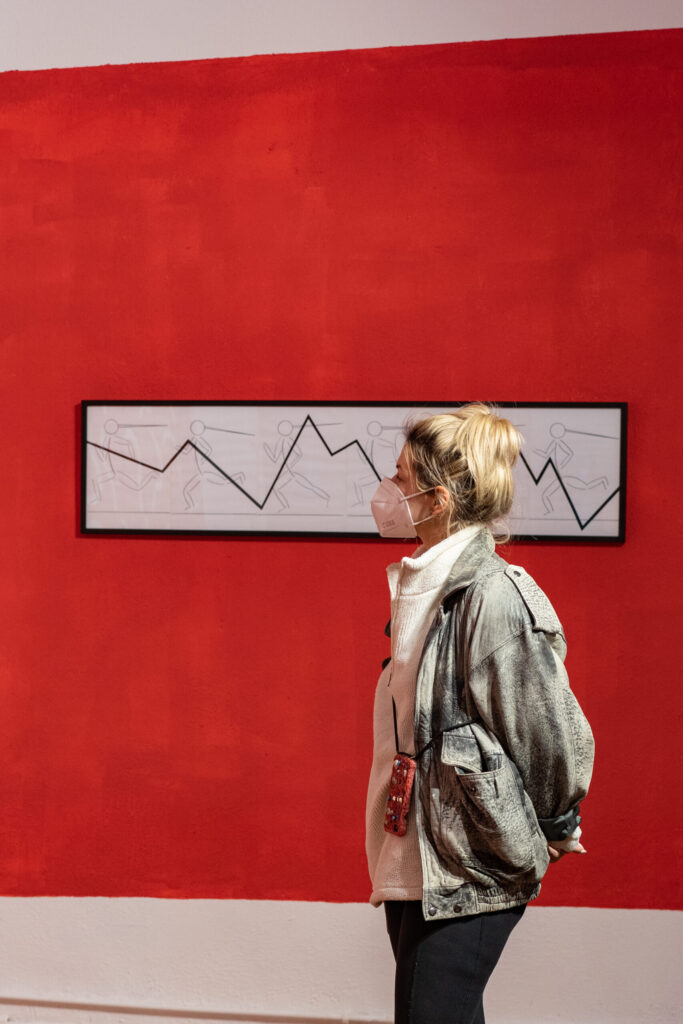
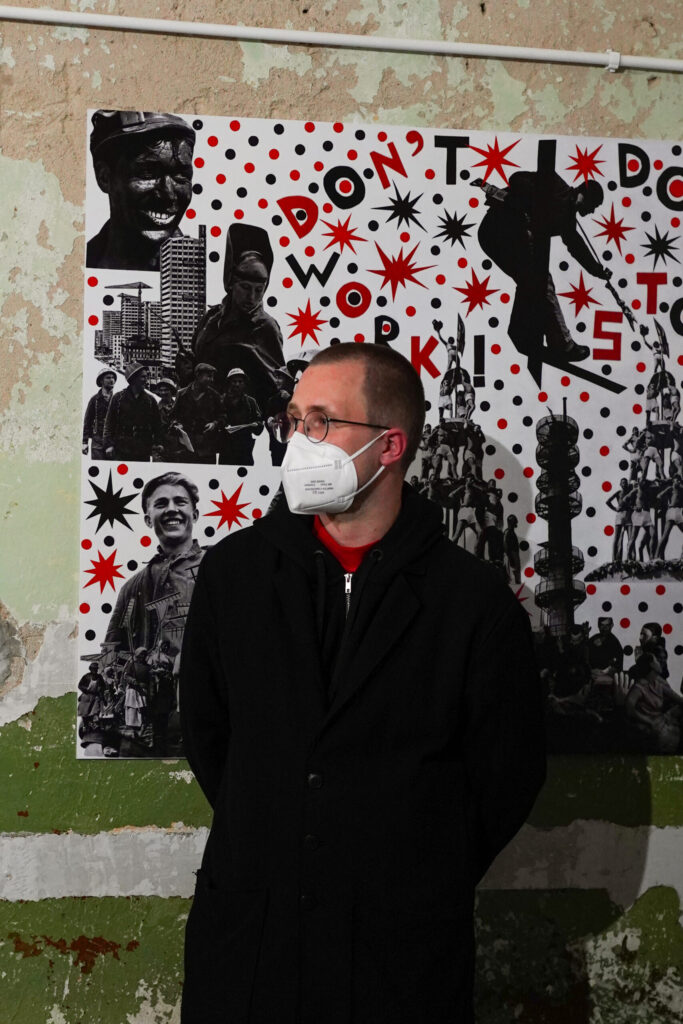
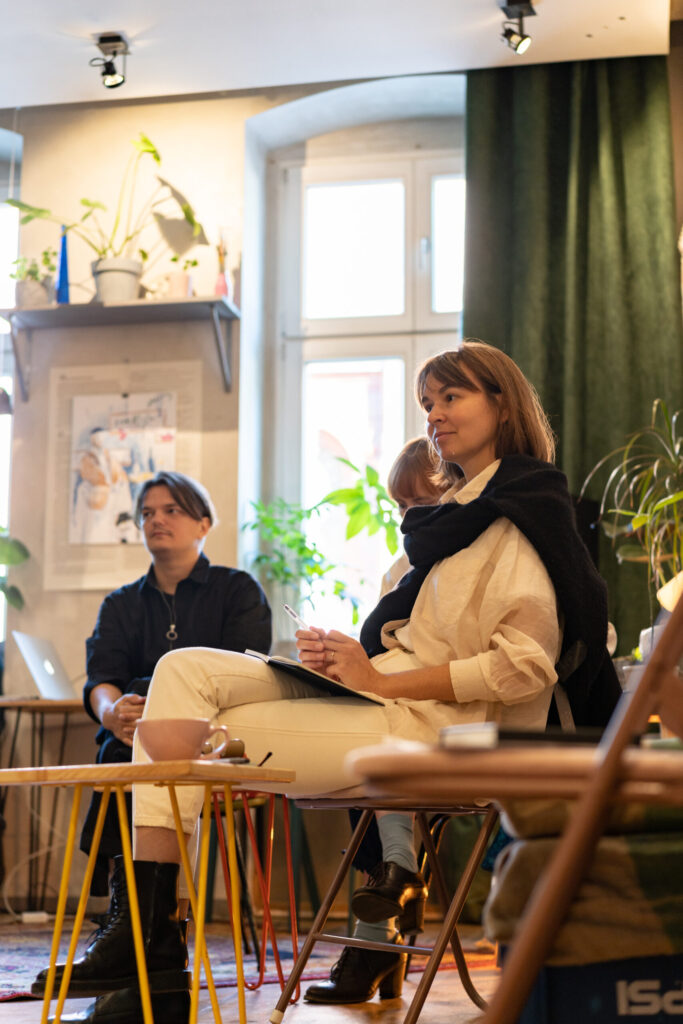
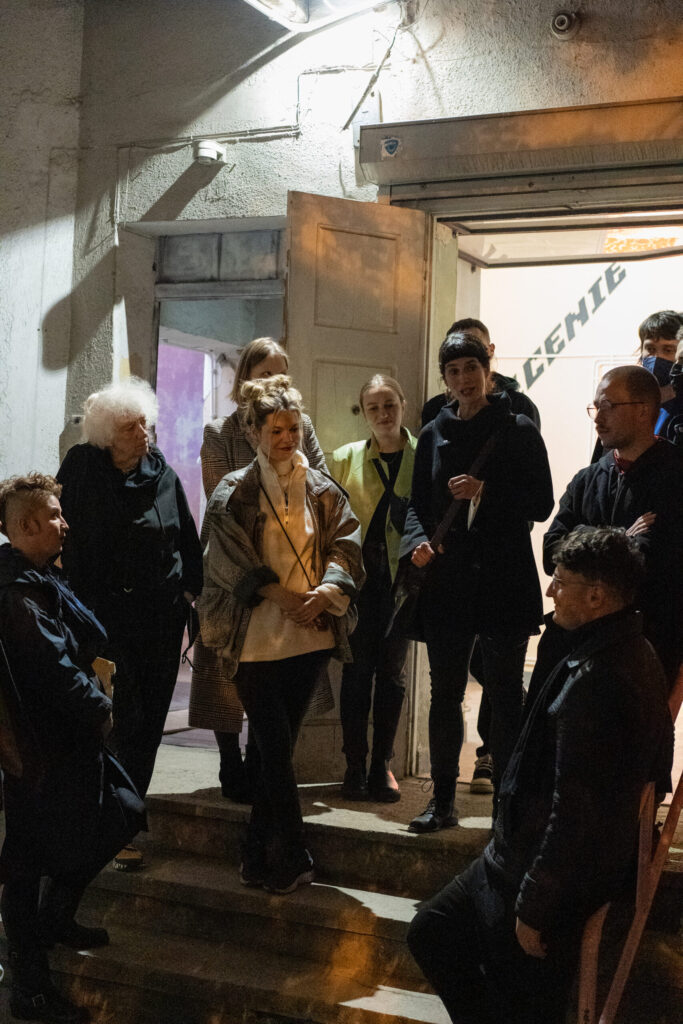
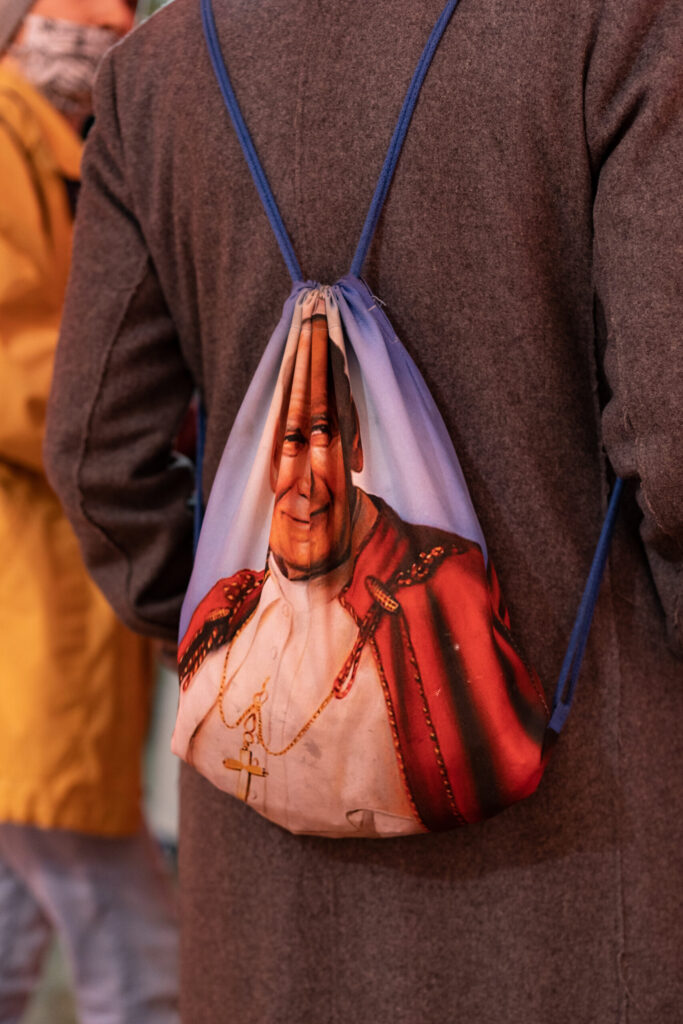
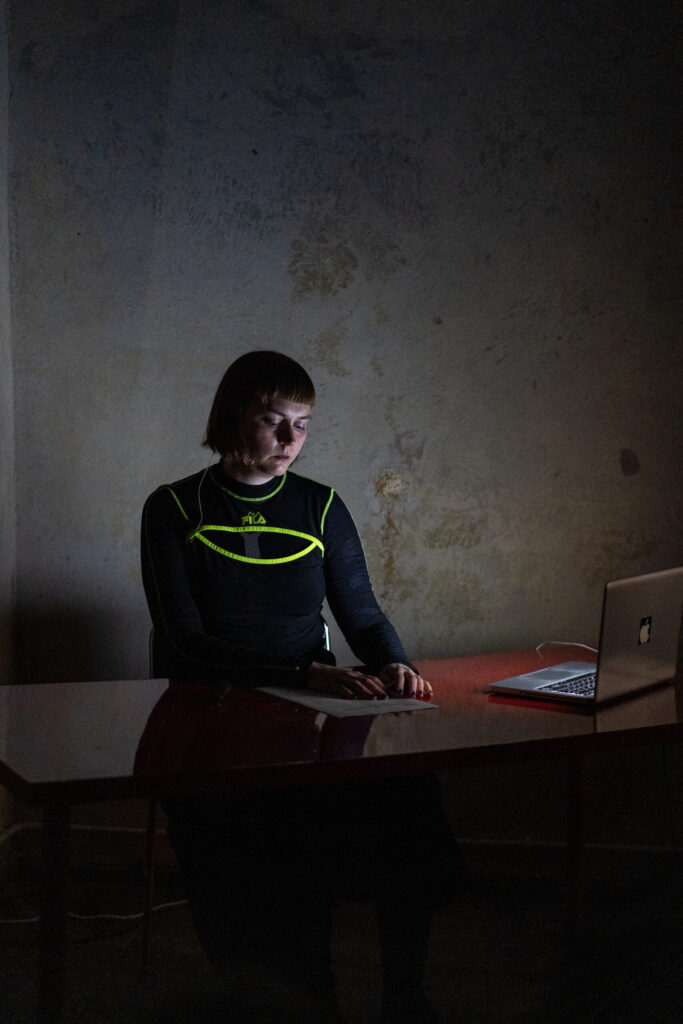
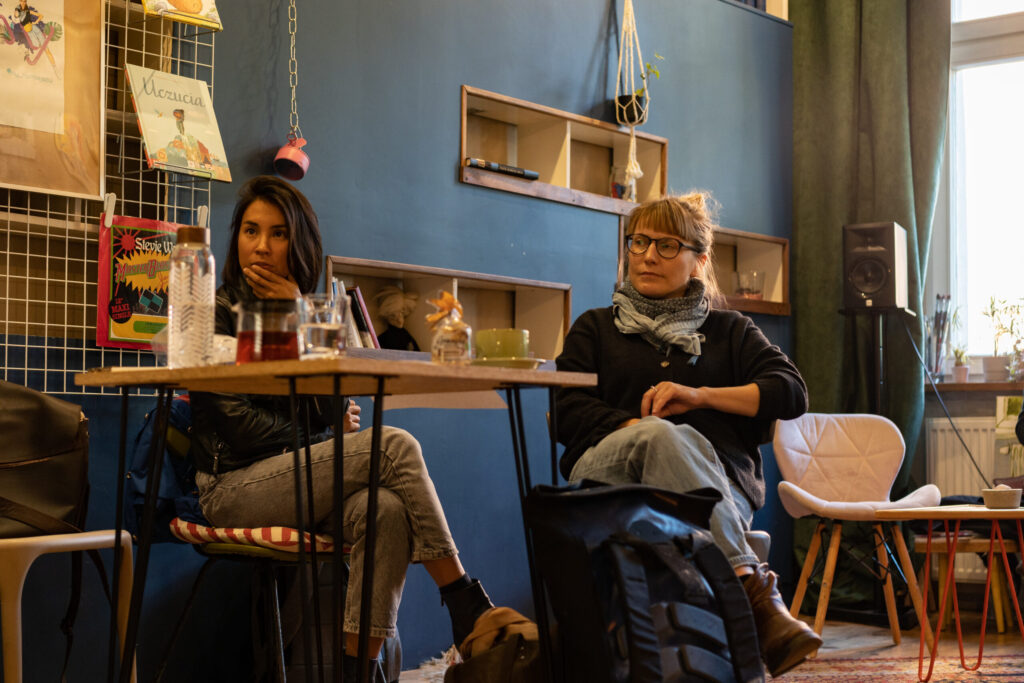
Curatorial Statement
The uprising in Belarus and Black Protests in Poland remind us of intuitions, affects, and intimacy that exist outside the field of knowledge. To know is also to capture, designate, hierarchise, order. Radical non-knowledge, unlearning, eluding the imposed norm oppose discipline, control, and order. The process of unlearning and evasion can be painful, but it can also be fierce joy, wilfulness, and cheerful obstinacy.
Sarah Ahmed speaks of wilfulness as a feminist practice of killjoy – interrupting a sexist conversation, avoiding a shared model of happiness, refusing to live the way we are forced to. Figures of radical non-knowledge – such as Dunno, Mullah Nasruddin, the ignorant teacher Joseph Jacotot, or the feminist killjoy – question the structure of a world that does not suit them and come up with possibilities for its transformation.
The Polish word “odkształcenie” stands for unlearning, refusal of knowledge that maintains the status quo and reproduces violence, patriarchy, imperialism through the educational system. For a better understanding of the connections and mechanisms that determine the situation in which we find ourselves at present, we need a willingness to question. “Odksztacenie” is also a deformation of the established ways of thinking about the past, present, and future. Boris Buden speaks of the Soviet as an idea necessary to maintain the status quo of capitalism. A system that does not admit its mistakes, weaknesses, and crises, sees the past not as an experience, but as the cause of all the present-day troubles. The radical breakaway from the past, the lack of understanding of the continuity of history lead to the impossibility of a comprehensive analysis of the problems of the present and, as it happened in Poland, to the radicalisation of nationalist sentiments, or in Belarus, to the authoritarian instrumentalisation of memory.
The one-sidedness of the narration proposed at the official level inevitably leads to a polarization of society, as well as attempts at introducing ever new prohibitions and censoring any dissent. The result is auto-censorship in the cultural field, including in the structure of institutions, universities, and academies. The artistic system and education are losing their inherent free-thinking, while lively discussions about the past and the present, as well as ideas for new models of the future, are born on the street, in a rioting crowd.
Likewise, the artists whose works are part of the exhibition invent new forms of (un)learning, refusal, and resistance. They question temporality and ideas based on a linear understanding of time – the lessons of history, denial of the past, fetishism of the future – and offer other models of affectation, participation, and living.
Liste der teilnehmenden Künstler*innen | Participating Artists
Anna Baumgart (Poland)
Patrycja Cichosz (Poland)
Lia Dostlijeva & Andrij Dostlijev (Ukraine / Poland)
Viktoria Grebennikava (Belarus)
Uladzimir Hramovich (Belarus)
Anneta Kraus (Austria)
Marina Naprushkina (Belarus / Germany)
Media activist collective Kafe-Morozhenoe and a working group (Working group: Dmitry Bezuglov, Ilya Budraitskis, Angelina Burliuk, Maria Dmitrieva, Elena Ishchenko, Nikolay Spesivtsev, Ilona Voytkovskaya, Dina Zhuk. Designer: Ulyana Bychenkova) (Belarus / Russia / Ukraine)
Agnieszka Polska (Poland)
Ala Savashevich (Belarus / Poland)
Sergey Shabohin (Belarus / Poland)
Olia Sosnovskaya (Belarus)
Raman Tratsiuk (Belarus / Poland)
Honza Zamojski (Poland)
Die Ausstellung war ein Teil des Projekts BelarusArtChange, einer trilateralen deutsch-polnisch-belarussischen Kooperation zur Förderung nachhaltiger Netzwerke für junge Kunstschaffende. Vor dem Hintergrund der Protestbewegungen in Belarus diente das Projekt der Vernetzung und Konsolidierung der belarussischen kritischen Kunstszene. Mithilfe einer Online Plattform kalektar.org wurde ein nachhaltiges und offenes Bildungs- und Austauschformat etabliert, das es den oftmals verstreut lebenden Kunstschaffenden aus Belarus ermöglicht, sich zu vernetzen, fortzubilden und gemeinsame Initiativen zu entwickeln. Die Integration von polnischen und deutschen Künstler*innen und Expert*innen generierte dabei erweiterte Impulse und Synergieeffekte im Projekt. Idealerweise entwickelt sich das so geschaffene internationale Netzwerk eigendynamisch weiter.
Die Ausstellung wurde im Oktober und November 2021 in den Räumlichkeiten des Kunstraums Domie in Poznan gezeigt und durch verschiedene Begleitveranstaltungen abgerundet.
Das Projekt wurde aus Mitteln des Auswärtiges Amts gefördert. Kooperationspartner*inne des Projekts sind die Rönne-Stiftung aus Berlin, die belarussische Vereinigung regimekritischer Kunstschaffender “Kalektar” sowie die polnische Galerie und Art Space “Domie” aus Poznan (http://roenne-stiftung.org/, http://en.kalektar.org/ http://domie.pl/).

